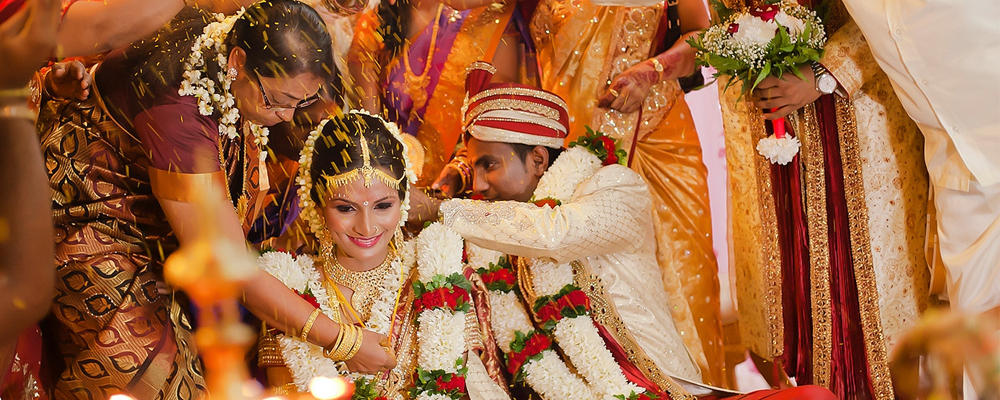The very foundation of the social structure is marriage. The Hindu law views marriage as an indissoluble, immortal rite. Marriage’s sacred nature has given birth to some abnormalities.
The Vedas, the earliest collection of Hindu writings, state that Hindu marriages last a lifetime. It is intended to unite two people so that they can carry out their Dharma, or duty, together. They surrender to Moksha at the conclusion of their existence, the ultimate spiritual release and the end of their rebirth cycles. Hinduism holds that the definition of true love is to reincarnate with your soulmate at each cycle of rebirth in order to spend the rest of time together. The Hindu Marriage Act, 1955 was passed to address inequities between spouses and to safeguard the sacred nature of marriage. This law offered a number of matrimonial remedies.
Need A Legal Advice
The internet is not a lawyer and neither are you. Talk to a real lawyer about your legal issue

Irretrievable Breakdown of Marriage:
Under this concept, the couple is no longer able to cohabitate as husband and wife. The court must be convinced by both partners as well as one partner that there is no likelihood of the Hindu marriage working out again. Even though the spouses are living together under the same roof, the divorce laws in India as they currently stand do not accept a circumstance where the marriage is equivalent to a separation even though they are still married.
Lawyers and jurists are now familiar with the theoretical justification for the inclusion of the irretrievable collapse of marriage as a ground for divorce. When neither party is at fault, or the fault is of a kind that the parties to the marriage do not wish to disclose, yet a situation has arisen where the marriage cannot be worked, or when the Hindu marriage has all the outward signs of marriage but none of the reality, restricting the grounds for divorce to a specific offence or matrimonial disability causes injustice. When the emotional and other boundaries that constitute the core of marriage have vanished, there is barely any use in keeping the union as a façade. There is no reason to deny divorce after the marriage has ceased to exist in actuality and substance. In circumstances like this, only the persons involved can determine whether or not their relationship is emotionally and socially genuine and robust. Divorce should be viewed as a remedy and a means out of a trying circumstance. Such a divorce should not be focused on righting past wrongs, but rather on helping the parties and the children adjust to the new situation and changes by determining the most agreeable foundation upon which they may manage their relationship in the shifting environment.
Supreme Court’s Recent Judgement On The Concept of Irretrievable Breakdown of Marriage:
In a recent order, the Supreme Court heard a transfer petition that a wife had filed with the Top Court in an attempt to save her marriage. When the wife is willing to give the marriage one more “attempt,” the Supreme Court has stated that it will not exercise its authority under Article 142 to annul the marriage; nevertheless, the husband asserted that the marriage had irretrievably broken down. It was revealed to a bench made up of Justices Sanjay Kishan Kaul and Abhay S. Oka that the couple had only lived together for 40 days and had been living separately for almost two years.
The bench stated, “We have not reached Western standards of marriage today and divorce tomorrow,” underscoring the fact that marriage is not a casual event in India. There have also been comments about how one shouldn’t anticipate something impossible from a marriage.
The bench refused to dissolve the marriage in response to the husband’s request, stating that when one party is hesitant, Article 142’s powers cannot be used to dissolve the marriage.
The bench remarked on the couple’s high level of education, and the fact that the husband led an NGO and the wife was granted permanent residency in Canada and added that they have to try to work out their disagreements. During his virtual appearance before the Court, the husband alleged that his marriage was a “honey trap” and that his wife was only interested in his money: “The motivator here was always money.” He told the court that she had asked for a settlement of Rs. 2 crores.
The bench stated that this is not a matter in which it may suo motu exercise 142 and that it is exceedingly difficult to record satisfaction that marriage has completely broken down unless both parties agree to that fact. The wife testified before Canada’s highest court that she had given up everything to marry the man, but the husband persisted in getting the marriage dissolved. The husband stated that he intended to live with his old parents, but his wife insisted on not doing so because she had a Canadian perspective. The bench informed the husband that he had wed a Canadian citizen, and he then requested that she drop everything and come here.
The Supreme Court bench reviewed the parties’ claims, which were submitted in the form of an affidavit, and determined that the claims were absurd. The couple was urged to participate in mediation sessions by the top court. It designated a former judge of the Punjab and Haryana High Court as the mediator, permitted him to seek the help of a marriage counsellor, and requested a report within three months.





 Talk to a Lawyer
Talk to a Lawyer